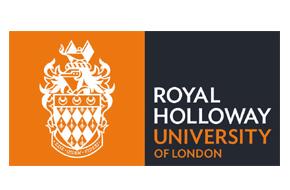Should
school teachers have the power to inspect children’s lunchboxes and remove or
destroy items deemed unsuitable? Lunchboxes have been in the news recently
following outraged parents at a school in Colchester reporting that their
children have had items like Scotch eggs confiscated. http://www.telegraph.co.uk/news/politics/11711699/Teachers-can-lawfully-confiscate-keep-or-destroy-unhealthy-lunchbox-snacks-ministers-say.html.
Lord Nash, an education
minister, replying to a question in the House of Lords said that:
There is nothing to prevent schools
from having a policy of inspecting lunch boxes for food items that are
prohibited under their school food policies. A member of staff may confiscate,
keep or destroy such items found as a result of the search if it is reasonable
to do so in the circumstances. It would be good practice for the pupil to be
present during an inspection and for a second member of staff to be present if
any items are to be confiscated.http://www.parliament.uk/business/publications/written-questions-answers-statements/written-question/Lords/2015-06-16/HL522/
Dr
Benedetta Cappellini and I have been researching the social side of children’s
lunchboxes. Our findings show how parents (and particularly mothers) feel on
display through the contents of their children’s lunchboxes. Not only does surveillance happen from school
staff but also from other mothers who ask their children what is in their
friends’ lunchboxes. The
mothers we interviewed showed a concern that packing a ‘bad’ lunchbox could be
seen to imply that one was a ‘bad’ (or less caring) mother. Illustrating this, one
participant explained:
I wouldn’t want the school
to think, “Oh my God,” like, “his mum has just spent two seconds packing this”.
Or it to look specifically like he’s packed it himself, in terms of the content
[…] I think there is an element thereof, “I don’t want to be judged, on the
basis that my kid’s got inappropriate food regularly, on a regular basis. Because you want people to think you’re at
least a good parent or trying your best anyway.
One
parent even described including a daily ‘token apple’ in the lunchbox to ‘keep the
school happy’, knowing that her son would never eat it. We conclude that these
kind of surveillance mechanisms are unhelpful and it would be better for
schools to engage in dialogue with parents where their voices and concerns can
be understood. The parents in our study expressed justifiable concerns such as wanting
to make sure their children were not hungry throughout the day and making sure
they actually ate their lunch.
You
can read more about our research in a paper in the journal Sociology. This paper, titled
‘Mothers on Display: Lunchboxes, Social Class and Moral Accountability’
explores mothers’ narratives on their daily routines of preparing
lunchboxes for their children. In this paper lunchboxes are understood as an
artefact linking together discourses and practices of doing and displaying
mothering, media and government discourses of feeding children and broader
issues of care and surveillance in private and public settings. http://soc.sagepub.com/content/early/2015/02/02/0038038514559322.full


No comments:
Post a Comment